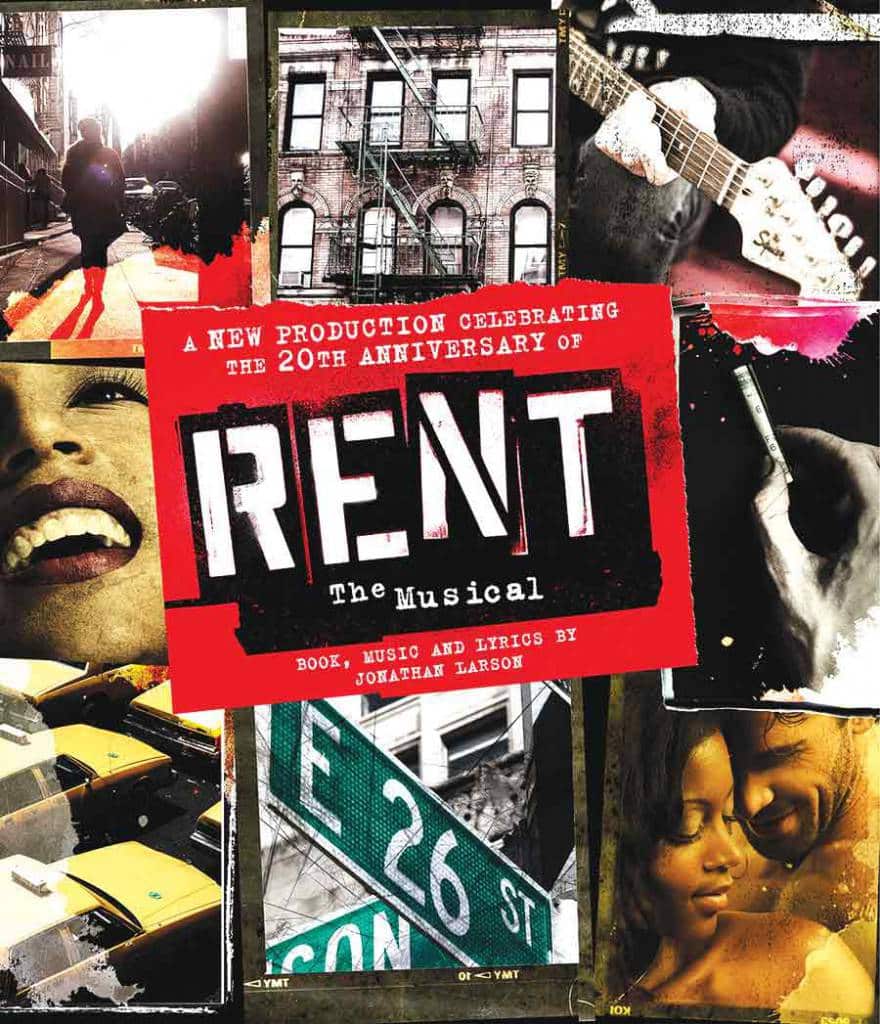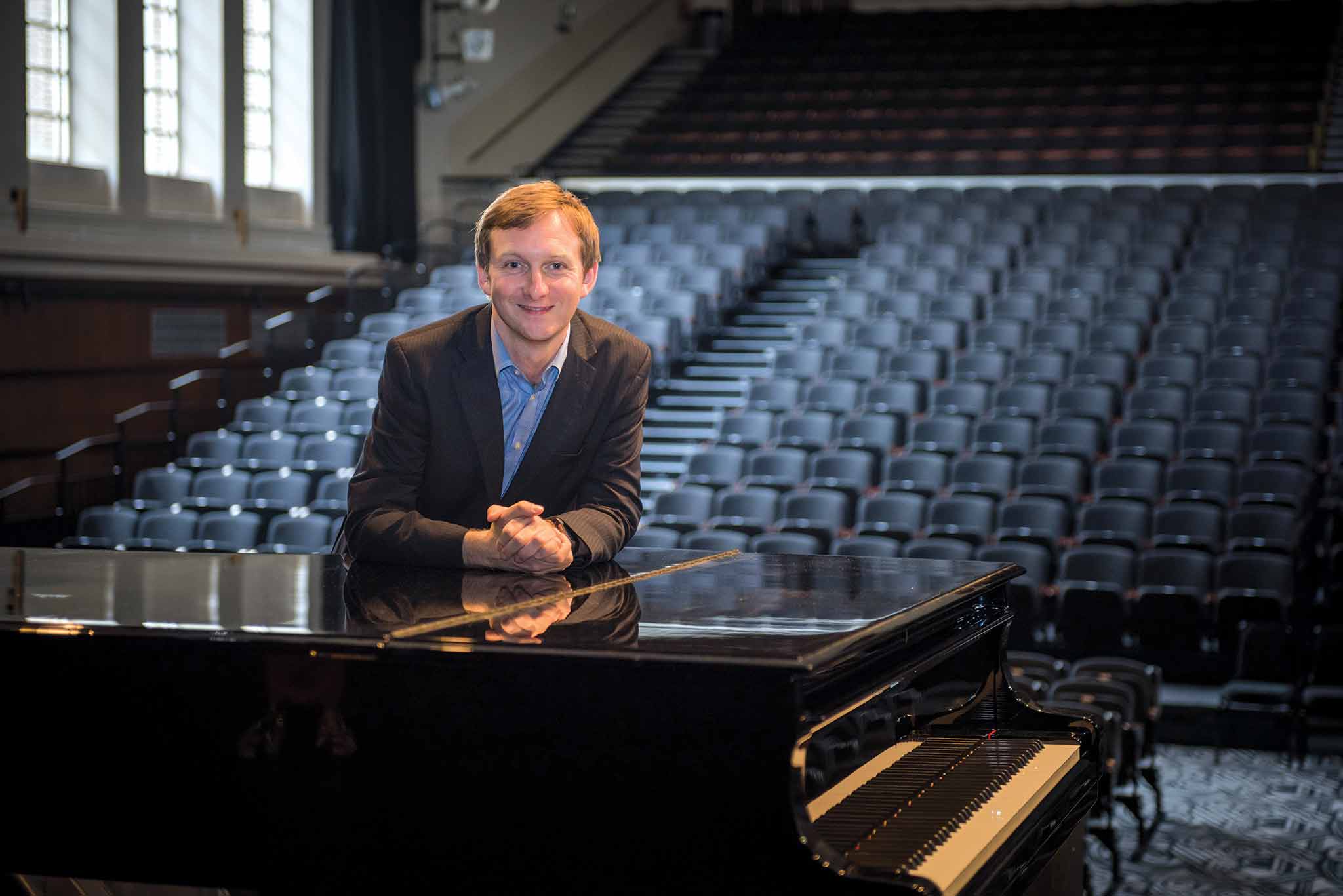Although John-Jackson Almond has only been in his new role as director of the Assembly Hall just shy of three months, he’s already starting to make his mark at one of the borough’s most established and well-loved theatres.
Having succeeded former director Brian McAteer in May this year, John-Jackson – or JJ as he likes to be known – stresses two things repeatedly throughout the course of our exclusive chat. Firstly that he is very keen for the Assembly Hall to be used a lot more for the good of the local community, and secondly he’d like it to be a little more flexible, not just in terms of the content it puts on but working alongside other creative venues.
It would appear then that exciting times lie ahead for the Assembly Hall, which underwent a major and very stylish £1.5million refurbishment last year, bringing it into the 21st century and neatly in line with JJ’s creative plans for its future.
“We have such a cultural asset in the Assembly Hall,” he declares as we sit down on one of the plush sofas in the newly decorated bar area, which boasts a smart, contemporary nickel grey and mustard yellow colour scheme, eye-catching lighting and a slick, super-long bar counter that wouldn’t look out of place in a chic London cocktail establishment.
Having been joint executive director and producer at London’s Park Theatre for the past three and a half years, and in that time produced ten plays, some of which ended up at the National Theatre and in the West End, JJ certainly seems to have all the right credentials for his new role. So how did it come about?
“I was looking for a bigger, better challenge,” he says.
“I loved being at the Park Theatre but after sharing the overall responsibility there I wanted to do something independently.
“I’d been to the Assembly Hall once before with a show called Cissie and Ada, but that was before the refurbishment. So when I came back for my interview and saw how it had been transformed I thought ‘Wow!’ Having brought a show here I knew I could help and change how we do things.”
Other positives that struck JJ about the council-owned venue, which was built in the 1930s and seats nearly 1,000 people, was the fact it’s in such a beautiful place. “When I got the job I was taken on a tour and got a real sense of just how much there is in the borough. It’s both cosmopolitan and rural and the people are relaxed.”
In terms of having a creative brief to follow, JJ says there isn’t one.
“I haven’t been given a directive. It’s more of a case of ‘if you want to do something you can do it’. What I have been given is the venue and a clean slate to develop what we do, and ultimately I guess we want to be a bit more commercial.”

By this, he says he means in terms of the quantity and quality of the products.
“What I want to see more of in the programme is really good, high quality West End shows. We’ve got Mousetrap coming here which is a classic and celebrating its 60th year. And we’ve just had it confirmed that Rent will be coming in 2017.” Another thing that JJ is changing is the number of tribute bands that come and play.
“I think there are some really good ones like The Counterfeit Stones and Killer Queen, but ultimately there will be less of this genre.”
A show’s popularity is easily evaluated by simply judging the ‘number of bums on seats,’ says JJ.
“When Cabaret, which starred Will Young, came here it sold out so that obviously tells me what people like. That’s why I want more shows like that here. I’d also be interested in getting some high quality Shakespeare in, so I have opened up discussions with the Royal Shakespeare Company. Further down the line it would be great for us to start creating our own work too as I have those skills in directing and producing.”
But JJ’s approach to finessing the cultural content offered by the Assembly Hall is also very democratic. Since his arrival he has opened up a valuable conversation with the audience members themselves.
“I’m very keen that we talk to them more,” he confirms. “We’ve put out surveys after each show to get a steer on what our audiences did and didn’t enjoy about a particular performance, and we have plans to leave surveys elsewhere in the town like the Gateway. I’m really interested in people’s feedback and all of it comes directly to me. We’re not such a massive organisation that people shouldn’t be able to speak directly to me.”
The community as a whole is of huge value to JJ and he clearly understands the importance of its relationship with the Assembly Hall to ensure ongoing success.
“It’s so important to have that connection. I think we could be doing a lot more with schools and local groups. We have got some regular returning ones such as Tunbridge Wells Operatic Dramatic Society (TWODS) and various orchestras, but there should be more. It’s just another way of trying to develop some community ownership of the building to get people to come here, feel welcome and want to be here.”
JJ says he also wants to strike up positive relationships with people from the other creative hubs in the town.
“We’re lucky to have Trinity Theatre, The Forum, The Grey Lady and the Tunbridge Wells Museum and Art Gallery, so it’s about working out how we capitalise on all our assets.
“By this I mean complementing each other and sharing resources. We could, for example, have a pool of workers and technical people that we could all dip into. It’s about joined-up thinking, sharing information. A simple example is if one venue has a jazz act on then everyone knows so they don’t book a similar one and suffer when hardly anyone turns up.”
JJ’s commitment to making the overall Tunbridge Wells community feel more involved in the Assembly Hall is admirable, but if he personally had to choose some favourite pieces of theatre to put on there, what would they be?
“I enjoy plays that have a truth and a moral journey in them. A favourite would be something like Ragtime as it’s really heartfelt and truthful. I’m a big fan of Shakespeare’s The Tempest. It’s not like the rest of his plays: It’s fantasy but it’s challenging and the language is very technical.”
For now JJ’s main message for the future is simple: “We’ve got a cultural asset that we can sing from the rooftops about – and it’s your theatre. I’m in no way saying use it or lose it, just make more of your Assembly Hall.”








